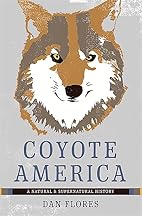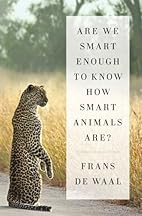I'm actually on pace to finish 150 books this year, though November may slow me down, since I'm planning to take part in NaNoWriMo, and writing time will be more important than reading time!
In September I read 13 books. Looking back at the list, these three stood out the most for me:
Coyote America by Dan Flores
I didn't know much about coyotes when I started this book--they just don't have the same mystique about them as their larger, rarer, and more glamorous wolf cousins. But I finished it filled with respect for and interest in these scrappy, resilient, clever survivors who've only thrived more in the face of attempts to eliminate them.
Homegoing by Yaa Gyasi
Literary fiction is generally among my least favorite fictional genres (I'm also not much of a reader of horror, Westerns, or hard science fiction). Rightly or not, I expect it to be depressing, self-important, and prone to putting fancy writing ahead of an engrossing story.
I'm glad I made an exception for Homegoing after hearing it raved about up and down the internet. (I think maybe Sarah Wendell or one of her guests on the Smart Bitches podcast was raving about an advance copy, and that was what put me over the top to putting it on hold at my library.) This is a beautiful book, and while it's not a happy, escapist read, it feels honest in both its ample sorrow and occasional joy as it follows the descendants of two Ghanaian half-sisters, one who lives out her life in Africa while the other is enslaved and taken to America, over ~250 years.
Are We Smart Enough to Know How Smart Animals Are? by Frans De Waal
More natural history, this time a general overview of the current state of the science of animal cognition. Basically, we're becoming increasingly aware that many animals are more intelligent and thoughtful than we believed even two or three decades ago, especially when we try to see from their points of view. (E.g. early studies thought chimpanzees couldn't recognize faces...based on studies of their ability to distinguish between HUMAN faces. Turns out you do the same studies with OTHER CHIMPANZEE FACES, and they're quite good at it. By the same token, some studies suggested dogs were smarter than wolves because they're better at understanding human facial expressions, hand gestures, etc. Never mind how well wolves communicate AMONG THEMSELVES in their cooperative hunting.)


